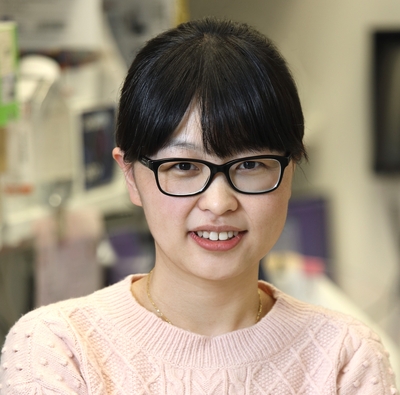
Research Topics
Tumor heterogeneity is a major contributor to therapeutic failures and lethal outcomes in liver cancer. A better understanding of tumor heterogeneity is critical for improving liver cancer treatment. Using cutting-edge technology in single-cell and spatial omics assays, my research program will develop novel approaches to understanding tumor heterogeneity in the context of tumor initiation and evolution. Our long-term goal is to improve early detection and therapeutics for liver cancer.
1) Tumor heterogeneity. Tumor heterogeneity is a common feature in liver cancer. However, what determines the observed different degrees of cellular heterogeneity among tumors is not known. One possible mechanism is that distinct cells within each tumor serve as cells of origin in tumorigenesis among patients. Thus, we are interested in understanding the tumor cells of origin. In addition, the tumor microenvironment (TME) has been recognized as a key player in promoting tumor heterogeneity. Within a tumor ecosystem, tumor cells continuously communicate with the TME through cell adhesion, signaling molecules and small vesicles. Our ability to dissect the communication networks connecting the tumor with the TME would allow a better understanding of tumor heterogeneity. Moreover, cellular functions are closely related to the cell’s location within the tumor. Deciphering the spatial information of the tumor and stromal/immune cells would provide a critical framework in which to understand their communications.
2) Tumor evolution in response to treatment. Tumor evolution is a key feature of tumorigenesis and plays a pivotal role in driving intratumor heterogeneity, treatment failure, escape from immune surveillance and ultimately, patient prognosis. We have demonstrated that a tumor’s evolutionary trajectory may change over time in response to immunotherapy based on single-cell profiling of core needle tumor biopsies from liver cancer patients before and after treatment. It is known that only ~20% of liver cancer patients respond to immunotherapy, and it is unclear why some patients respond to immunotherapy while others do not. To improve liver cancer treatment, we use longitudinal clinical tumor specimens and animal models to identify molecular features that are responsible for tumor evolution.
Biography
Dr. Ma received her Ph.D. degree in Electronic Engineering at the City University of Hong Kong in 2016. After a one-year postdoctoral fellowship at Nanyang Technological University, Singapore, she joined NCI in 2017 as a postdoctoral fellow where she studied cancer biology using single-cell techniques. She initiated her independent research program at NCI as a Stadtman Investigator in 2022. Dr. Ma has a strong background in mathematics, information theory and machine learning. She received many awards during her training, including the NCI CCR Excellence in Postdoctoral Research Transition award. Her recent work on tumor heterogeneity and microenvironmental reprogramming in liver cancer was showcased in the 2019-2020 NCI Center for Cancer Research Milestones publication.
Related Scientific Focus Areas
This page was last updated on Friday, December 12, 2025



